Book "More Plato and less Prozac". [ENG-ESP]
Versión en Español
Libro"Más Platón y menos Prozac
Hola Hivers amantes de los libros
Bienvenidos a mi blog
Hoy quiero hablarles de este texto que tanto me ha encantado leer, lo he hecho 2 veces. Pero antes de hablarles de mi experiencia con el libro, quiero comentarles sobre lo que este libro evoca.
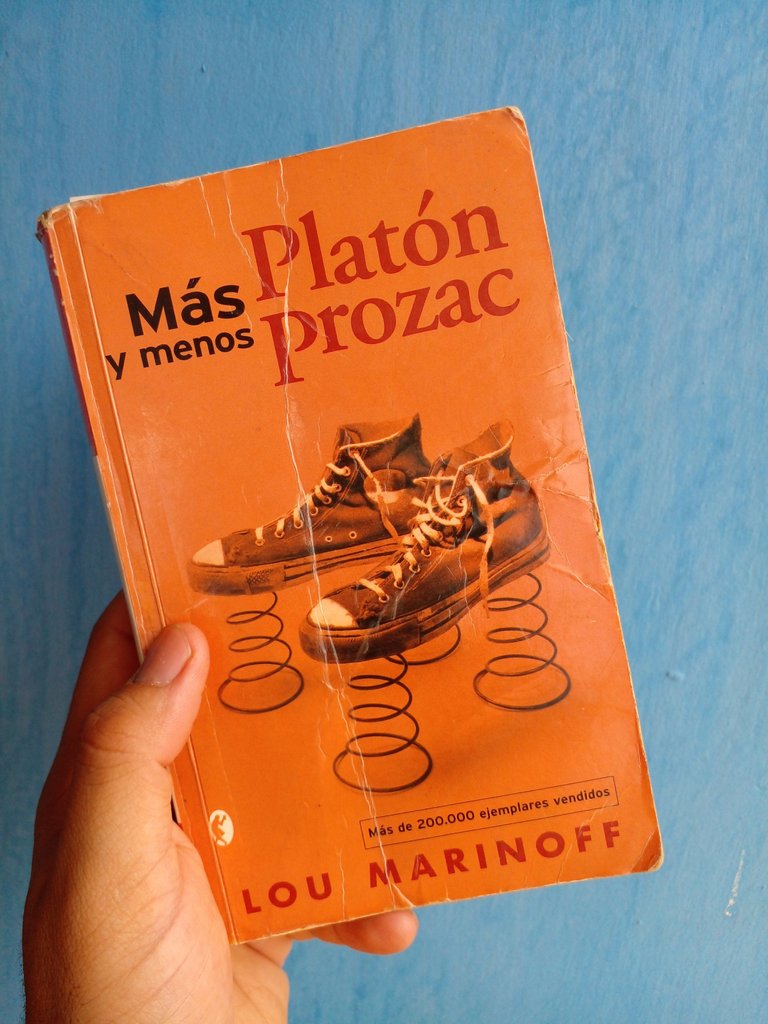
Como estudiante de filosofía una de las preguntas que más nos hacen es: ¿Para qué sirve la filosofía? Aunque esta pregunta nos puede sumergir en un profundo dilema, no es tema de este post. Pero ilustra mi punto, les explico de que hablo.
La filosofía ha cargado con el peso de quedarse en planteamientos abstractos, de estar destinada a solo espíritus selectos y de estar confinada al aula. Aunque lejos de ser eso, una equivoca interpretación sobre esta disciplina ha legado con semejante creencia.
Pero en realidad la filosofía tiene los pies muy bien puestos en el suelo. Y tiene profundos beneficios e interesantes visiones prácticas que nos pueden ayudar a vislumbrar cuestiones vitales. Por ejemplo: la filosofía piensa la vida, la muerte, el sentido de la vida, y en fin, incontables temas que como seres humanos nos competen.
Este libro más Platón y menos Prozac nos invita a mirar lo práctico de la filosofia, mirarla como una terapia para el alma, como bien lo pensaron los romanos en la antigüedad. Al punto de considerar a la filosofía como la cura del alma.
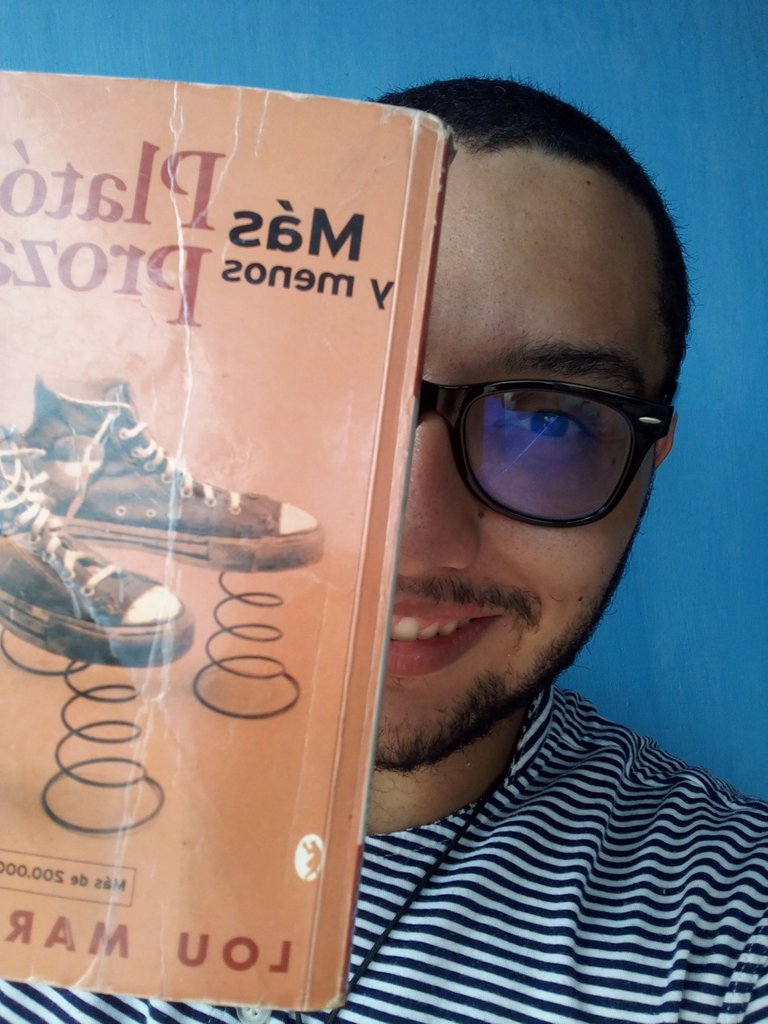
Convirtieron el conócete a ti mismo del oráculo de Delfos en cuidado de si mismo, mejor conocido como: "cura sui".
Este libro del que hoy les platico nos ayuda a comprender la filosofía en sentido práctico, y cómo nos puede ayudar en la resolución de problemas, superar crisis, descubrir cuales son nuestros valores éticos y morales, pero lo realmente importante es que este libro nos ayuda a descubrir cual es nuestra filosofia de vida.
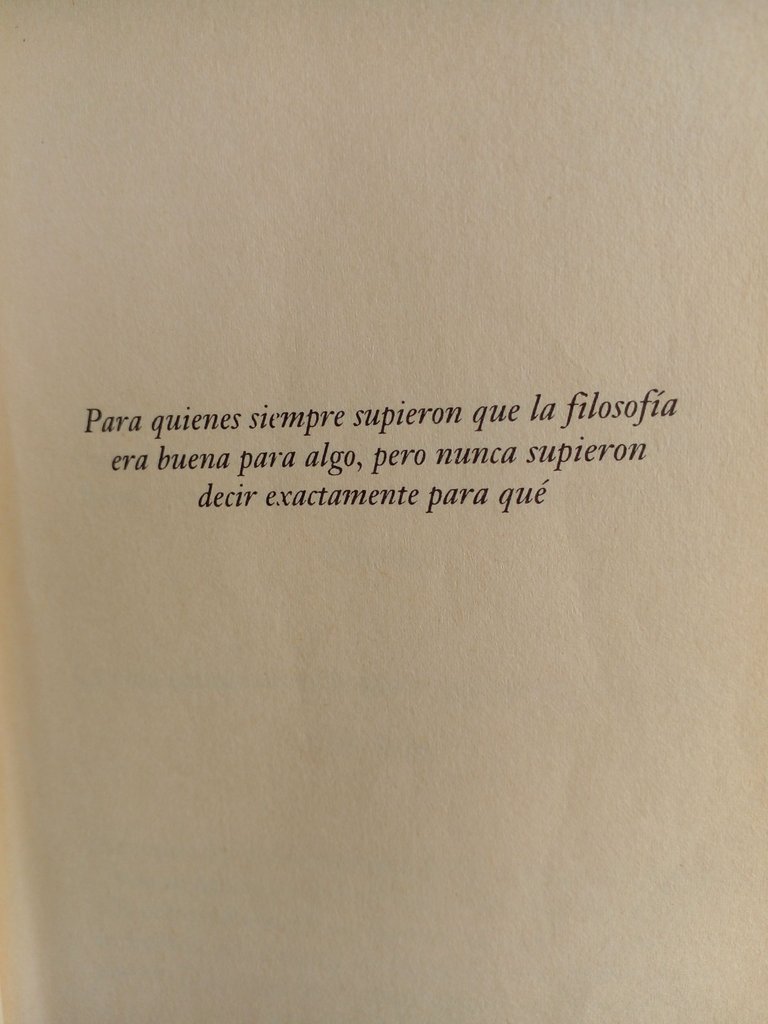
Todos tenemos una filosofía de vida, con este libro hacemos consciente esa filosofía o modo de comprender el mundo que nos caracteriza a cada uno de nosotros.
El autor del texto, el filósofo Lou Marinoff afirmó que se inspiró en los más grandes filosofos y corrientes filosóficas de toda la historia humana. Y se enfoca en tratar los problemas que podemos decir que son habituales, tales como la relación de pareja, el sentido y significado de la vida, la muerte y como vivir éticamente.
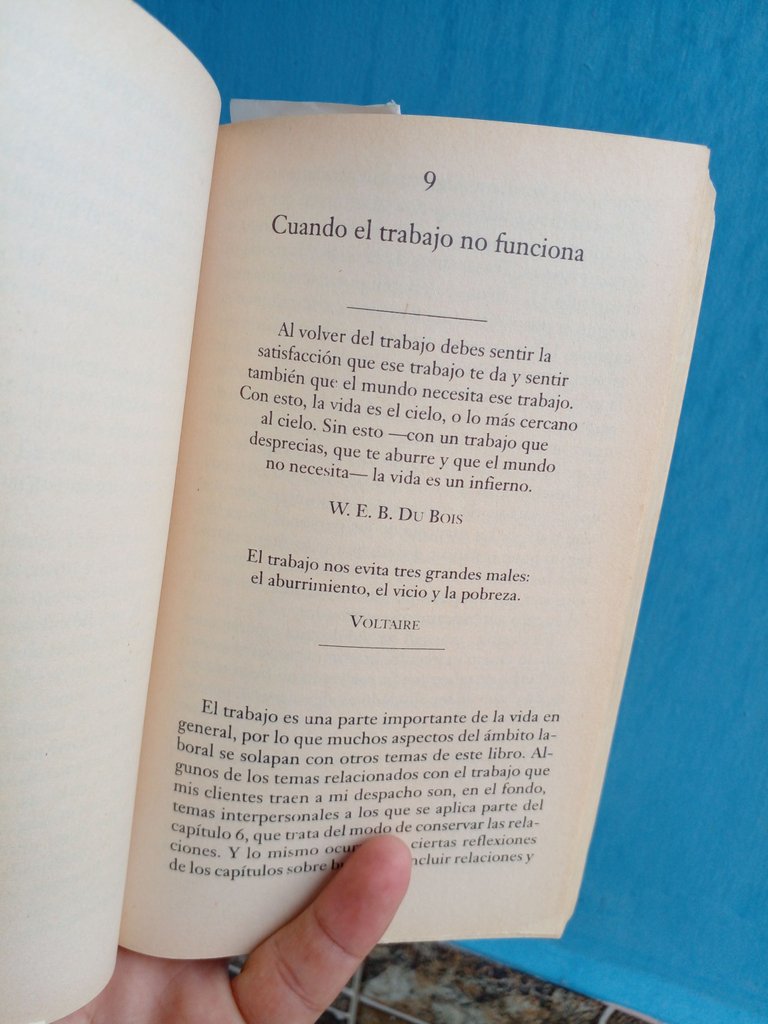
Además una de las cosas que más me sedujo del libro es que, esta repleto en cada capitulo de frases increíbles de muchos pensadores, poetas, científicos, sabios y sobre todo filósofos.
Debo confesar que ha sido uno de los textos que me han influenciado al punto de motivarme a comenzar un proyecto de difusión filosófica.
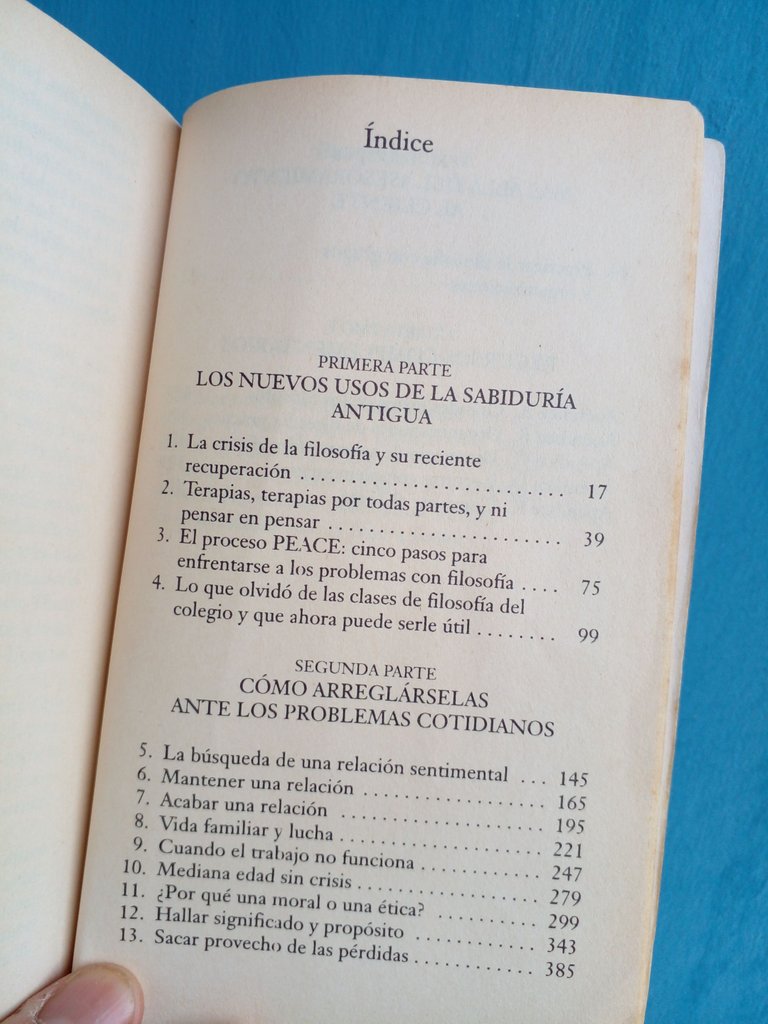
Otra de las cosas qué me atrapó del libro es que propone ejemplos de casos reales que ilustran de manera grafica las ideas que propone el autor, y también en los primeros capítulos propone un metodo basado en la filosofía para solucionar los problemas personales.
El método se llama "PEACE" básicamente es dividir el problema en partes y no abordarlo como un todo. Son 5 pasos:
- Problema
- Emoción
- Análisis.
- Contemplación
- Análisis
Este libro en realidad es increíble tanto para quien no sabe mucho de filosofía, como para quien ya tiene un camino recorrido de lecturas filosóficas.
Espero te animes a leerlo!
Gracias por leer
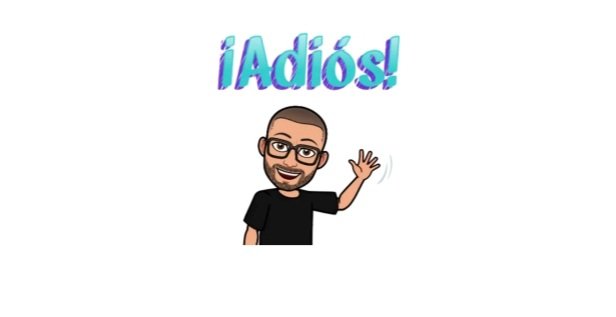
English Version
Hello Hivers book lovers
Welcome to my blog
Today I want to talk to you about this text that I have loved reading so much, I have read it 2 times. But before I tell you about my experience with the book, I want to comment on what this book evokes.

As a philosophy student, one of the questions we are asked the most is: What is philosophy for? Although this question can plunge us into a deep dilemma, it is not the subject of this post. But it illustrates my point, I will explain what I am talking about.
Philosophy has been burdened with the burden of remaining in abstract approaches, of being destined to only select spirits and of being confined to the classroom. Although far from being that, a mistaken interpretation of this discipline has bequeathed such a belief.
But in reality, philosophy has its feet firmly on the ground. And it has profound benefits and interesting practical insights that can help us glimpse vital questions. For example: philosophy thinks about life, death, the meaning of life, and in short, countless topics that concern us as human beings.
This book, more Plato and less Prozac, invites us to look at the practical side of philosophy, to look at it as a therapy for the soul, as the Romans thought of it in antiquity. To the point of considering philosophy as a cure for the soul.

They turned the "know thyself" of the Delphic oracle into "self-care", better known as "cura sui".
This book that I am talking about today helps us to understand philosophy in a practical sense, and how it can help us to solve problems, overcome crises, discover what our ethical and moral values are, but what is really important is that this book helps us to discover what our philosophy of life is.

We all have a philosophy of life, with this book we make conscious that philosophy or way of understanding the world that characterizes each one of us.
The author of the text, the philosopher Lou Marinoff stated that he was inspired by the greatest philosophers and philosophical currents of all human history. And he focuses on dealing with problems that we can say are commonplace, such as the relationship with a partner, the meaning and significance of life, death and how to live ethically.

In addition, one of the things that seduced me most about the book is that it is full in each chapter of incredible phrases of many thinkers, poets, scientists, sages and above all philosophers.
I must confess that it has been one of the texts that have influenced me to the point of motivating me to start a project of philosophical dissemination.

Another thing that caught my attention in the book is that it proposes examples of real cases that graphically illustrate the ideas proposed by the author, and also in the first chapters proposes a method based on philosophy to solve personal problems.
The method is called "PEACE" basically is to divide the problem into parts and not approach it as a whole. There are 5 steps:
- Problem
- Emotion
- Analysis.
- Contemplation
- Analysis
This book is really incredible for those who do not know much about philosophy, as well as for those who already have a long way of philosophical readings.
I hope you are encouraged to read it!
Thanks for reading
